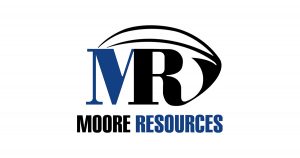Does Workers Compensation Insurance Cover My Employees Out-of-State?

Photo by Stephen Monroe on Unsplash
Business demands do not usually halt at state borders which prompts many CEO’s and business owners to ponder the question of insurance protection for their employees when venturing across state lines. Workers compensation for out-of-state employees is a complex issue and coverage for out of state employees depends on several variables that should be considered. Failing to contemplate out-of-state employee duties could leave your company vulnerable against workers' compensation claims.
The penalties for not maintaining workers' compensation insurance differs from state to state and can result in fines, jail time, and potential civil lawsuits from employees.
Determining Workers Compensation Jurisdiction
Although it varies from state to state, generally, to establish workers compensation jurisdiction, three basic principles are employed:
- Principally, is the employee's place of work localized in the state (or states) listed in the workers compensation policy?
- Physically, where was the employee standing when they accepted the job offer?
- Where does your employee live?
Primary vs. "Other" States
States where the work is being performed or will be executed, is referred to as primary states, and they ought to be listed in your company’s workers compensation policy. Most states look at the location of the business where employees regularly reside, work, and/or spend a considerable portion of their working time as the primary/principal location. You may have a problem if that location is not in a state already listed in your workers compensation policy. Additionally, certain projects may take employees to new states for what can be defined as a “considerable portion of working time”.
Under Section 3.C. of the US insurance regulations, to ensure your workers are covered, you must notify the insuring company about the following:
- Bordering states - this covers exposure arising from workers engaged in the primary state but are living in a different state.
- States in which your business is planning to open a location or begin operations.
- States with which your employees lack "significant contact" but to which their travel might occasionally visit customers/clients or attend work-related conventions/courses.
It's important to note that a worker's compensation policy has been designed to cover the listed primary states. Any coverage extended to the "other states" is only for incidental exposures. Coverage for "other states" does not come automatically as there are typically specific requirements in the policy language which that must be met if coverage is to apply.
When is Reporting Out-of-State Work Necessary?
Reporting out-of-state labor is necessary anytime your employee is crossing a state border, whether he or she is going to work there for just a single day. This ensures that your business or organization has the appropriate statutory coverage included in your workers compensation policy. Some states demand specific reporting by the insurance carriers, failure of which can lead to penalties or fines.
Additionally, worker's compensation policies do not apply to Washington, Wyoming, Ohio, and North Dakota. These are considered "monopolistic" states and coverage can only be procured through the jurisdiction of each respective state.
Because state laws that regulate workers' compensation vary from state to state, you'll need to know the specific requirements if your business is operating in multiple states. If you suspect that business operations will require your employees to travel out-of-state, it is important to consult with a licensed Insurance agent to ensure proper coverage.

Moore Resources is an Independent Insurance Agency located in St. Petersburg, FL and offering Homeowners Insurance, Auto Insurance, Personal Insurance and Business Insurance. Our reach extends beyond the Tampa Bay area to the entire state of Florida. Moore Resources has regionally been dedicated to serving the local residents of Pinellas, Hillsborough, Polk, Pasco, Manatee and Sarasota counties; including St. Pete, Tampa, Clearwater, Bradenton, Brandon, Dunedin, Gulfport, Lakeland, Largo, Lutz, Palm Harbor, Pinellas Park, Riverview, Ruskin, Seffner, Seminole, Temple Terrace, Tierra Verde, Town n Country, and the Gulf Coast Beaches.
The purpose of this blog is to present general information only. It does not interpret specific policies or coverage. In order to obtain detailed information regarding your insurance, contact a licensed insurance agent.












